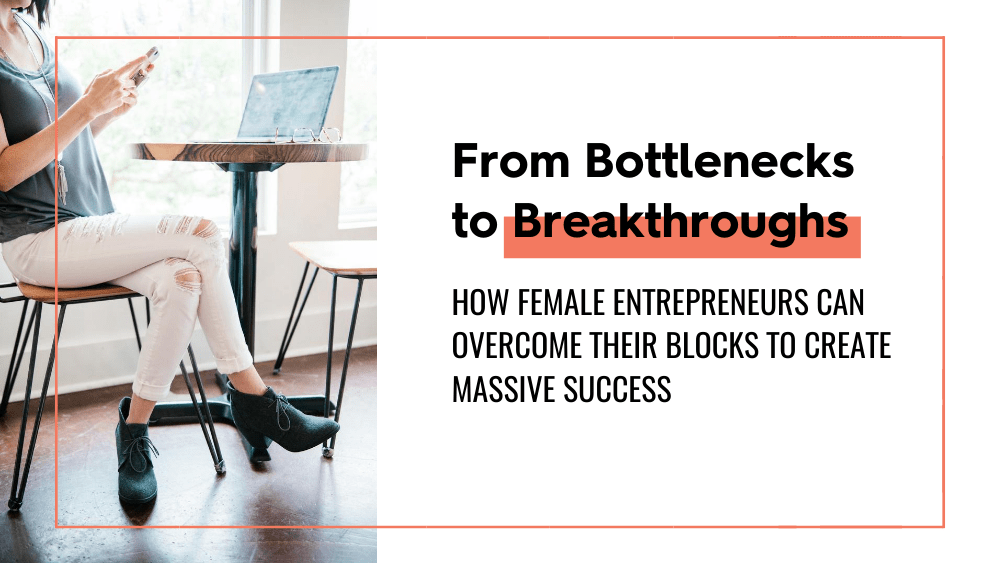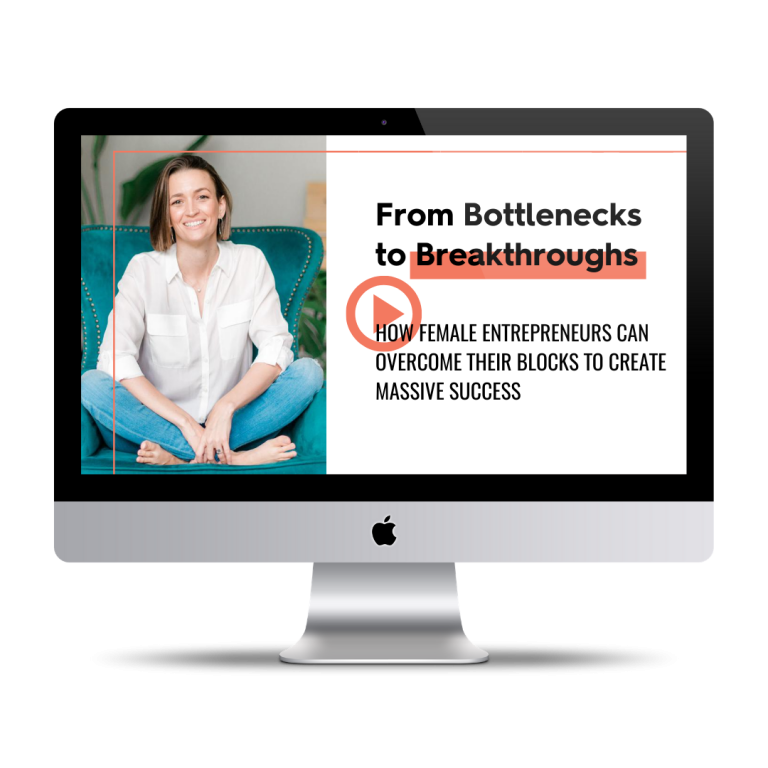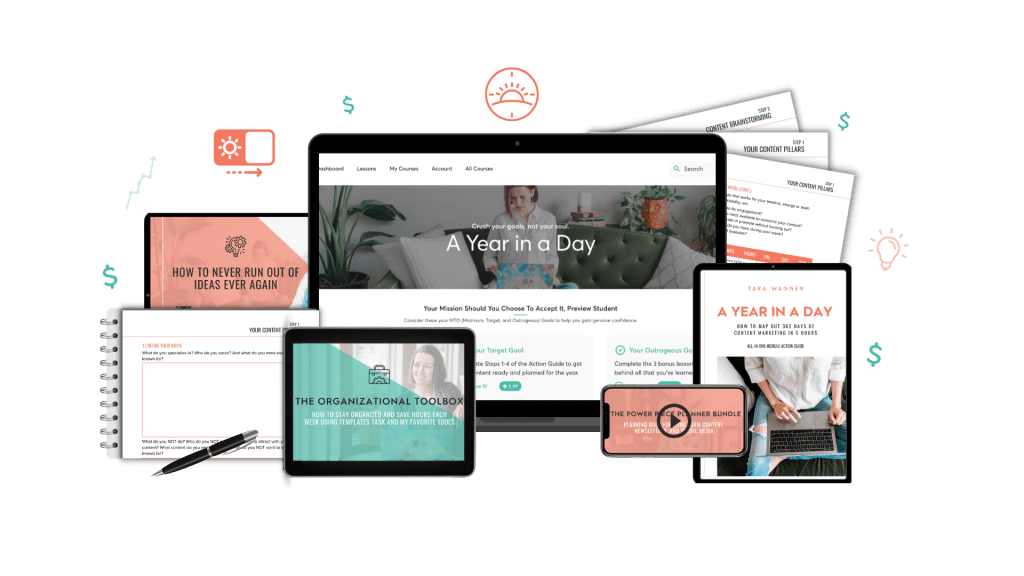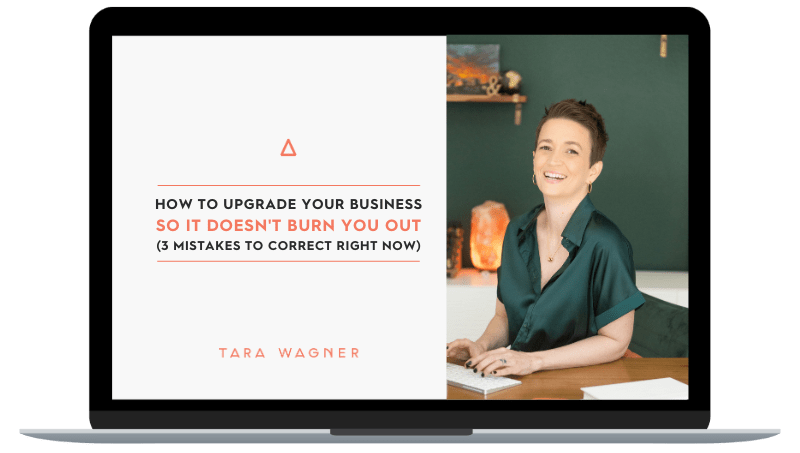Most of the advice out there on how to “work smarter, not harder” is a bunch of fluff or productivity tips, and that is not what this video is about.
In this blog, I really want to walk you through a few things that people really miss to not just get more done but get the right stuff done and in the most efficient way possible.
Watch here or read below.
If you Google the term “work smarter, not harder”, you get a lot of stuff like “learn to type faster”, and that is not what that phrase actually means.
That phrase is about being clever, about really analyzing what you’re doing and how you’re doing it to make sure you’re doing the right things, to make sure you’re not wasting time and energy, to make sure you’re not just wrapped up in busy work all the time.
This is something that I have a lot of experience with, both good and bad. I’ve been working for myself for close to two decades, and I have done a lot of both. What I want to share with you is things that I wish I had known in my first decade of work and not just figured out over the last few years.

Tip #1 – Stop Working Alone
Tip number one is to stop working alone.
Even if you are a solopreneur, we still get to remember that we are social, communal creatures. It doesn’t even matter if you’re introvert or extrovert. There’s a couple different ways, though, that I’m talking about not working alone.
The first is if you’re a business owner, you need to be outsourcing things. You need to stop DIYing everything.
You know that I’m going to talk about this until the cows come home because it’s such a problem, especially with newer entrepreneurs who are trying to scale.
There are very few successful businesses out there that are a one-man/one-woman show. You really have to look and see “where is my time best utilized“. Spoiler alert, it’s best utilized on the things that directly make you money. Any of the admin work or the things that support your ability to make money are usually things that you can outsource.
Another way that you can utilize this tip is through co-working.
Now, this doesn’t necessarily mean going to a co-working space, because for some of us that can be actually more distracting and less productive. But there is a really cool way that you can do this. It creates a sense of accountability when we can work with others, even if it’s not on common goals.
A popular way that I find people will do this is to jump on a video call together to pound out the most important work, or the work that maybe they’re avoiding the most.
They’ll jump on a call together for an hour and tell each other, “Okay, in the next hour, I’m going to be making these phone calls and doing this work while you’re doing X-Y-Z.” Then they’ll set themselves on mute and pound away at their work. Maybe their commenting every once in a while. But that accountability and that social interaction, even just in that small way, has a huge impact.
Because again, we’re not isolated people. We shouldn’t be living on an island. We shouldn’t be … Well, I mean, let me take that back. That sounds amazing. I would love to live on an island. But we shouldn’t be feeling like we are in isolation in our lives or in our work.
Tip #2 – focus on your outcome, not your output
Tip number two is absolutely crucial, and that is to focus on your outcome, not your output.
We live in a culture that absolutely loves to stay busy.
- If you’re focusing on output
- If you’re focusing on “how many things did I do today?”
- If you’re focusing on outcome, you’re looking at the things you did and you’re asking yourself, “Did they take me in the direction that I wanted to go? Were these the best things that I could’ve done today?”
Even if you only did one of them, if that one thing planted seeds, or set you up, or brought in a big payday, that’s so much more important than constantly working.

We feel like it is such a bad thing to rest or to work fewer hours. We have to hustle, hustle, hustle. We need to be doing 80-hour work weeks. And you know what? There’s a time and a place for that, but only if those things are creating the outcome that we’re actually after. If it’s just busy work and it’s not actually creating the financial freedom that you want, the time freedom that you want, the impact that you want, why are you doing it? What is the actual point?
So tip number two, focusing on outcome over output, kind of ties into tip number three…
Tip #3 – Double down
Tip number three is to figure out what’s working and double down on it – triple, quadruple down on it.
If you can zero in on the thing that’s bringing you the most success, that’s moving the needle in the direction you want to go in the biggest ways possible, that’s the thing that you need to be focusing the most time on.
If you can rearrange your week to focus mostly on those Big Rocks (if you don’t know what I’m talking about, check out this blog on Time Blocking and Big Rocks or this one on How to Prioritize When Everything Seems Important) and you’re spending the majority of your week on those things, everything else will fall into place. But you’re doubling down on what’s working to create more of the outcome, the results that you’re after.
But, here’s the thing about this; I don’t want you to just focus on or do more of what is working. I want you to focus on why it’s working.
So let me give you an example of this…
Let’s say you’re noticing that you’re getting a lot of business through networking events. Does this mean you should go to more networking events? Maybe. I mean, if it’s working, double down on it. But stop and look at why is it working. Is it because you’re in your element? Is it because you work better when you can have conversations with people? What is it about those networking events that’s really working for you? If you can zero in on that WHY, you might find some other opportunities to capitalize on those same things.
So that’s tip number three. Figure out what’s working, figure out WHY it’s working, and double down either on the what or on the why.
Tip #4 – Automate
Tip number four is to automate the crap out of everything, and I do mean everything.
Here’s why this is so important. We have two parts of our brain, right? And I don’t just mean left and right hemispheres. I’m talking about the active, thinking, figuring-things-out part of the brain and the habitual, don’t-have-to-think-about-it, it’s-just-going-to-happen-because-it’s-what-I-do-now part of the brain.
The more you can move things from that active part of the brain over to the habitual part of the brain, the autopilot part, the more you’re going to free up creative energy to work on things that really matter.
Think about it:
- Steve Jobs wearing the same clothes every single day.
- The number of successful people who talk about having the same morning routine.
- The people who talk about picking out their clothes the night before
- Those who batch cook so that they don’t have to figure out what’s for dinner every night.

The more you can automate in your life and in your business- so whether this is sales funnels, emails, whatever you can do to make things just a little bit simpler, cut and paste, that sort of thing, the more you’re going to free up mental energy to be able to spend on the most important things, the things that are going to create your outcome, the things that you’re going to want to double down on. You’re now going to have the time and energy to double down on them.
We don’t think it’s a big deal to be picking out something to wear or picking out our dinner every night until you actually start automating these things and realize how much time, energy, and freedom you finally have.
Now, I’m a person who actually hated automation. I hated routines. I hated structure. I didn’t want to know what I was going to be having for dinner (and lately, we cook a meal and we have it three or four days in a row because that’s the level of automation that we are enjoying right now). The reason we started doing it was because we were spending so much time and energy.
It takes you about 15 to 20 minutes to focus in on something.
If you have to stop to figure something out, and stop to figure something out, and stop to figure something out, when are you actually finally able to focus your energy on the right things?
Being able to do this changed our lives. Now I am obsessed with the idea of automating as much as I possibly can because I’m seeing how it’s freed me up to do the most important thing: connecting with people, creating content, managing my team, resting, having fun.
I have more time and energy for those things because I’m spending less time and energy on things that don’t actually matter and that I can automate.

#5 – fill the gaps
Tip number five is to fill the gaps.
Right now there’s a huge push towards strength-based work. I’m not totally opposed to it, but I’m not all for it either. Yes, we need to stay in our Zone of Genius. We need to know where we will really shine and double down on those things, right? But we also need to fill our gaps.
This means knowledge gaps. This means skill gaps. And this also means we don’t necessarily have to fill these gaps with our own time and effort. Again, we can be outsourcing things. So if there’s a gap in your business – if you really stink at bookkeeping, or marketing, or whatever it might be – you can fill that gap either by learning new skills or by finding somebody who knows those skills that you can outsource to.
Not enough people talk about the fact that we don’t know everything and we have to continue to learn and develop ourselves.
This isn’t feel-good coaching. This is do-good coaching.
If you really want to DO WELL, you have to look at your weaknesses. You GET TO look at your weaknesses. You need to uplevel the things that are going to trip you up. There will be things in your business and in your life that you don’t love to do, that are not your talent. They’re not your skill set. They’re not fun. And that doesn’t mean that you’re in the wrong business.
In every part of business, in every part of life, there is an aspect to what we do that we’re not going to like. But those are things that we can fill the gaps in on, too. How can we make this more fun? How can we make this easier? Again, how can we work smarter on this, not harder?
And let me tell you, ignoring something, ignoring a problem or a gap in your life or your business is a surefire away to be working harder. You’re working harder to avoid it. You’re working harder to solve the problems that it’s creating. If we want to work smarter, we need to fill the gaps.
And hey, how about a bonus tip?
Manage your mindset. Master your mindset.
We get to train that little puppy brain of ours that keeps crapping all over our goals. If you want to learn how to do that, I have an upcoming course to teach you how to create your own breakthroughs and uplevel your mindset.
You can get a free teaser of it with my free training Bottlenecks to Breakthroughs.
This is a 15-minute training that walks you through my entire belief breakthrough framework, the very thing that I have been teaching for close to a decade to help women to overcome their limiting beliefs and crush their goals, not their soul. You can learn more here or grab it by clicking the link below.
What about you, Boss Lady?
What are your best tips to work smarter, not harder, so that you can help inspire others who are watching this video looking for recommendations.







